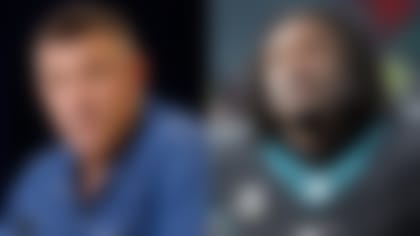NFL Evolution will feature a guest columnist every Tuesday, each with a different viewpoint of player health and safety from the youth level to pro football.
Dr. Elizabeth M. Pieroth, contributing columnist.
One of the most common questions I am asked from parents and athletes is, "How many concussions is too many?" My answer is always the same, "We don't know."
I explain that the current state of the science does not tell us exactly how many concussions are too many for any one person. We then have a lengthy discussion about the individual's history; including number of concussions, their recovery from these injuries, the length of time between concussions, the presence or absence of persistent symptoms, their medical history, their family medical history, their personal and familial psychiatric history, alcohol or illicit drug use, and the student's academic functioning. All of these factors need to be considered when making a decision about returning an athlete to a contact sport, any contact sport.
Parents and athletes will frequently tell me that they have heard you have to stop playing your sport if you have three concussions. This is a very common belief, and I am not exactly sure where this came from. It is possibly athletes' love of sports analogies, such as "Three strikes and you're out." It also might be a misunderstanding of the research on multiple concussions.
I caution athletic programs and schools against having this three-concussion policy. First, if you tell athletes they will have to stop playing a sport they love if they suffer three concussions, they will likely stop reporting any symptoms suggestive of a concussion. The athlete will not want to "use up a strike." That is the opposite of what we want. We need athletes to tell their coaches, athletic trainers or parents about any symptoms that indicate they might have suffered a concussion. We absolutely do not want them to hide their symptoms and continue to play.
Second, the research doesn't clearly define three concussions as this elusive "line in the sand." Research on multiple concussions is typically defined as three or more concussions so that group often includes subjects who have suffered significantly more than three concussions. The current research also doesn't tell us how all of the individual factors, like those mentioned above, impact recovery.
This should not be misconstrued as minimizing three concussions. We are always very concerned when someone is suffering repetitive concussions, particularly in a young, developing brain.
However, someone who has suffered three concussions in a year is different than someone with three concussions over a 10-15 year span. Someone with a learning challenge, such as a learning disability or Attention Deficit Disorder, raises other concerns in comparison to those without that history. An athlete who begins to suffer migraine headaches after their second concussion likely should not return to that sport.
However, I do strongly recommend an athlete "take a time out" from their sport if they receive three concussions in a year. This is often the athlete who does not have the right body type for their sport, adequate skill level relative to his/her peers, has an overly aggressive style of play, plays multiple contact sports or is just plain unlucky. In these situations, we remove the athlete for the rest of the season and revisit it the following year/season. We are then not automatically telling an athlete they can never return to their sport, which can be devastating to some athletes.
Many youth athletes move on to other activities but some request to return to their sport. The following season, it is then easier to evaluate how the athlete is doing physically, academically, socially, emotionally and then to assist the family in making a reasoned decision.
There are numerous factors to consider when making the decision about an athlete returning or retiring from a sport, not simply the number of concussions. These are often lengthy, difficulty talks. It is important that parents and athletes find the right healthcare provider who is well versed on the current research on concussions and understands the psychology of athletes.
Athletes and their families make extraordinary sacrifices to participate in a sport and these sports have great value for them. We need to encourage kids to be healthy, active and engaged in the sports they love, while always making safety the first priority.
Dr. Elizabeth M. Pieroth is a Board Certified Clinical Neuropsychologist and the Associate Director of the NorthShore University HealthSystem Sports Concussion Program (Evanston, Illinois). She has been involved in the assessment of players in the National Hockey League since 1997 and is the Head Injury/Concussion specialist for the Chicago Bears, Blackhawks, White Sox, and Fire and numerous colleges and high schools across the State of Illinois. She also is on the Board of Directors of the Brain Injury Association of Illinois and is a member of the USA Football Heads Up Advisory Committee and the U.S. Soccer Concussion Task Force.



